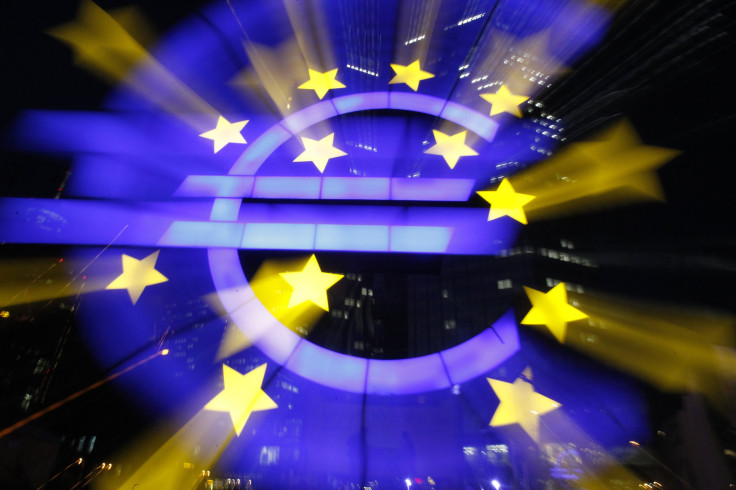Euro Zone Headed For 2nd Recession In 3 Years

A round of dismal euro zone economic data Wednesday provided additional firm evidence that the single currency bloc was most likely in recession in the third quarter.
Five countries in the euro zone are already in recession -- Greece, Spain, Italy, Portugal and Cyprus -- and others are expected to join them soon.
The region as a whole is expected to be confirmed to be in recession when the first estimate of euro zone economic activity in the third quarter is published on Nov. 15. A recession is defined as two consecutive quarters of negative economic growth.
Greece’s economic slump deepened in the third quarter amid austerity measures tied to its bailouts, with GDP shrinking 7.2 percent from a year earlier and accelerating from the 6.3 percent decline in the April-June period, the country’s statistics office said Wednesday.
By the end of this year, Greece will have lost a fifth of its economic output since it entered the recession in 2008. Currently, one in every four Greeks is without work.
Portugal’s economy also shrank, contracting for an eighth successive quarter, National Statistics Institute INE said Wednesday. What’s more, forward-looking indicators point to further sharp falls in GDP to come.
Portugal’s GDP declined 0.8 percent in the third quarter from the second quarter, when it fell 1.1 percent, while the jobless rate rose to 15.8 percent in the three months through September from 15 percent in the second quarter.
As the euro zone edges back into recession, Germany's economy -- by far the most powerful in Europe -- has taken a turn for the worse too.
GDP figure due on Thursday is expected to show growth in Germany slowed to 0.2 percent in the third quarter from 0.3 percent in the second. Meanwhile, many economists expect the German economy to contract in the last three months of this year – its first contraction since the end of 2011.
Separate data released Wednesday showed industrial production in the 17 countries that use the euro fell in September by the most since January 2009.
Factory output in the euro area plunged 2.3 percent in September compared to a year ago, dragged down by a 2.1 percent decline in Germany’s industrial output.
"The data add to evidence that the euro zone economy is heading back into recession as deteriorating economic conditions spread from deficit-fighting countries to previously robust-growing countries such as Germany," said Chris Williamson, chief economist for Markit.
It now looks highly likely that the euro zone will end 2012 with at least a 0.4 percent economic contraction -- the second recession in three years.
Following the grim Eurostat figures, even some of the more bullish economists are starting to revise down their predictions for Thursday’s third-quarter GDP release.
Barclays, which forecast no change in the third-quarter GDP reading but noted last week the potential of an upside surprise, now expects to see a 0.2 percent decline in third-quarter GDP.
“The bad end to the third quarter means that it will take sharp rises in production in October and beyond to prevent a large contraction in the fourth quarter,” writes Ben May, European economist for Capital Economics.
“Note too that the timelier surveys of business activity and sentiment point to worse to come. On balance, then, we expect the euro zone to fall deeper into recession in the latter part of this year and worse is to come in 2013,” May added.
© Copyright IBTimes 2024. All rights reserved.






















